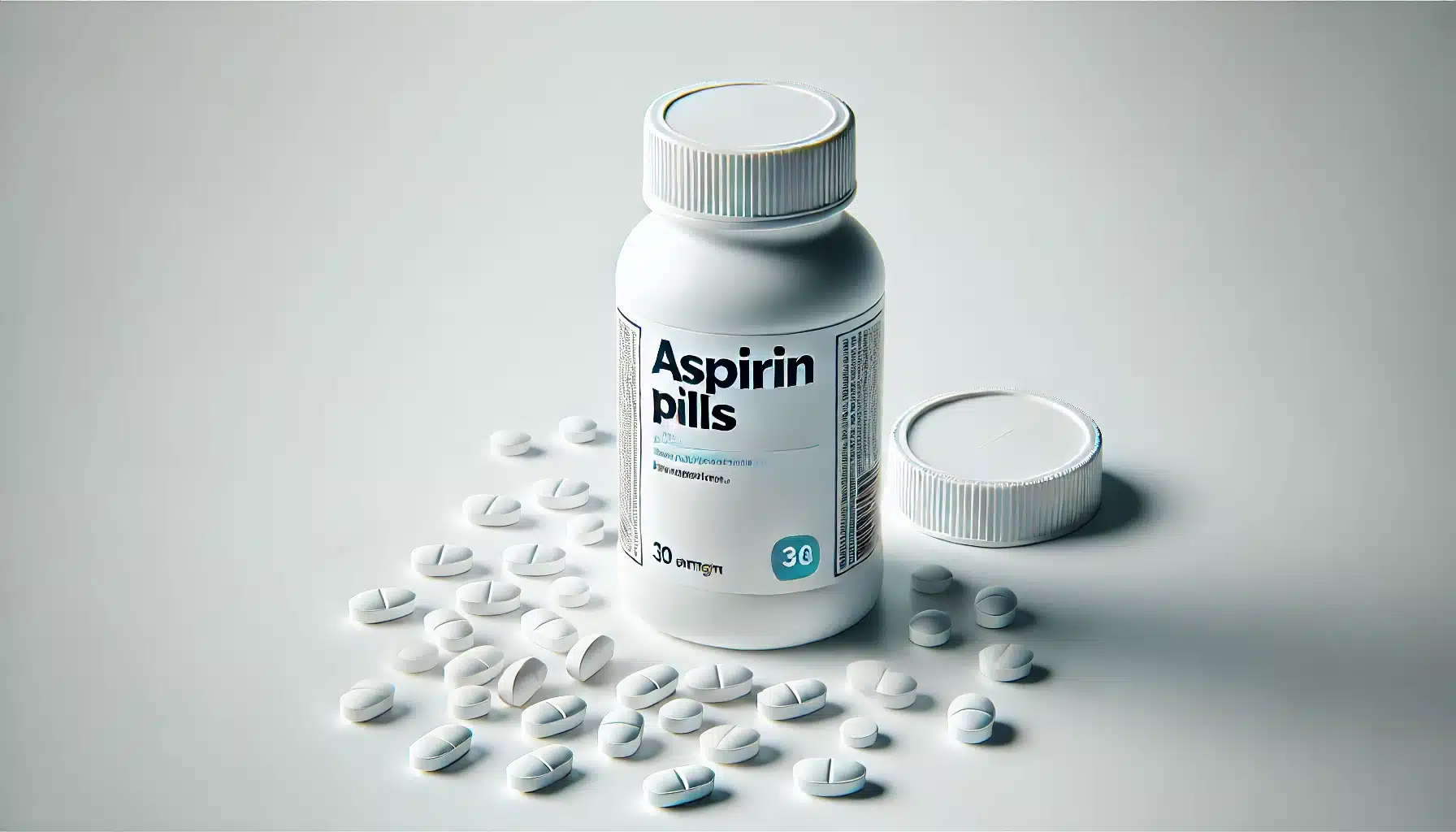1. Introduction to Aspirin and Its Medical Uses
Aspirin in Preventing Heart Attacks is a widely recognized method in the medical field for reducing the risk of heart attacks. It is essential to understand the origins and various medical applications of aspirin to fully grasp its significance in cardiovascular health.
1.1. History of Aspirin Usage in Medicine
Aspirin has a rich history that dates back to ancient times when it was derived from willow bark. Over the centuries, its formulation and application evolved, eventually becoming a staple in modern medicine for pain relief, anti-inflammatory purposes, and heart attack prevention.
1.2. Common Uses of Aspirin Beyond Heart Health
Beyond its role in heart attack prevention, aspirin is commonly used to relieve pain, reduce inflammation, and lower fever. Its versatility makes it a crucial component in many over-the-counter medications.
- Pain relief for headaches, toothaches, and muscle pain
- Anti-inflammatory for conditions like arthritis
- Fever reduction during common illnesses
2. How Aspirin Works in Preventing Heart Attacks
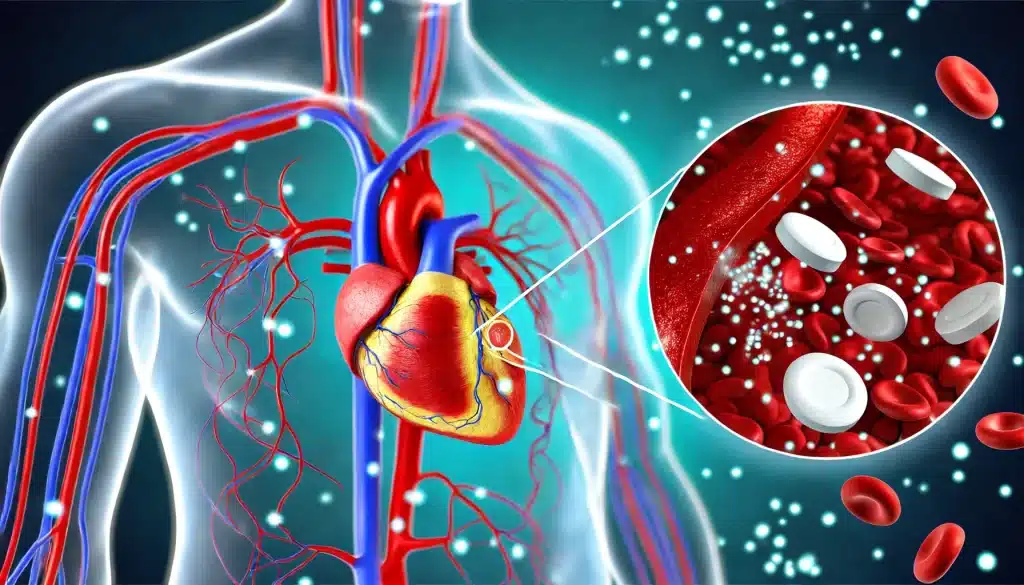
Aspirin for Heart Attack Prevention works primarily through its ability to reduce blood clot formation, which is a key factor in the occurrence of heart attacks. By inhibiting certain processes in the body, aspirin plays a vital role in maintaining cardiovascular health.
2.1. Mechanism of Action: How Aspirin Affects Blood Clots
Aspirin inhibits the production of thromboxane, a substance that promotes platelet aggregation and blood clot formation. By reducing thromboxane levels, aspirin effectively thins the blood, making it less likely for clots to form and cause blockages in the arteries that can lead to heart attacks.
2.2. The Science Behind Aspirin and Heart Attack Prevention
Studies have shown that low-dose aspirin can significantly reduce the risk of a first or subsequent heart attack, especially in individuals with risk factors such as hypertension, high cholesterol, or a history of cardiovascular issues. The consistent use of aspirin for heart attack prevention is supported by a substantial body of scientific evidence.
- Inhibition of platelet aggregation
- Reduction in the formation of arterial plaques
- Lowering overall cardiovascular risk in at-risk populations
3. Benefits of Aspirin in Cardiovascular Health
Aspirin for Heart Attack Prevention offers several benefits that make it a cornerstone in cardiovascular care. Its efficacy in reducing the likelihood of heart attacks has made it a recommended therapy for many individuals at risk.
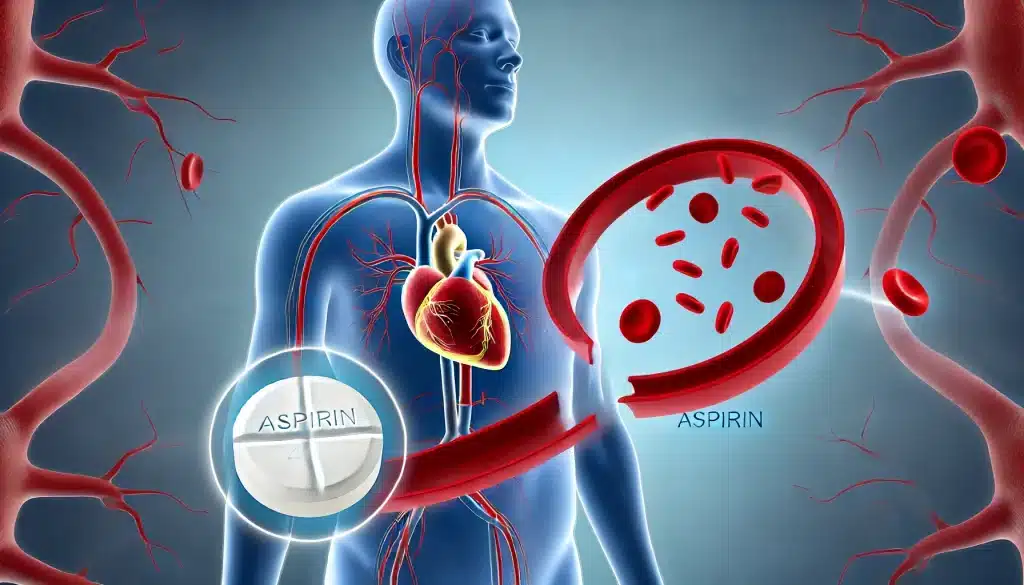
3.1. Proven Benefits in Reducing Heart Attack Risks
The primary benefit of aspirin is its proven ability to lower the risk of heart attacks by preventing blood clots. Clinical trials have demonstrated that regular aspirin use can reduce the risk of a first heart attack by as much as 30%, depending on individual risk factors.
- Reduces the risk of a first heart attack in high-risk patients
- Helps prevent recurrent heart attacks
- Potentially lowers the risk of stroke in certain individuals
3.2. Additional Cardiovascular Benefits
Beyond preventing heart attacks, aspirin has other cardiovascular benefits, including reducing the risk of certain types of stroke and aiding in the management of chronic cardiovascular conditions. Its anti-inflammatory properties also contribute to overall heart health.
- Reduction in inflammation associated with cardiovascular disease
- Potential protective effects against ischemic stroke
- Support in managing peripheral artery disease
4. Risks and Side Effects of Aspirin
While aspirin for Heart Attack Prevention is beneficial for many, it also comes with potential risks and side effects that must be carefully considered. Understanding these risks can help patients and healthcare providers make informed decisions about its use.
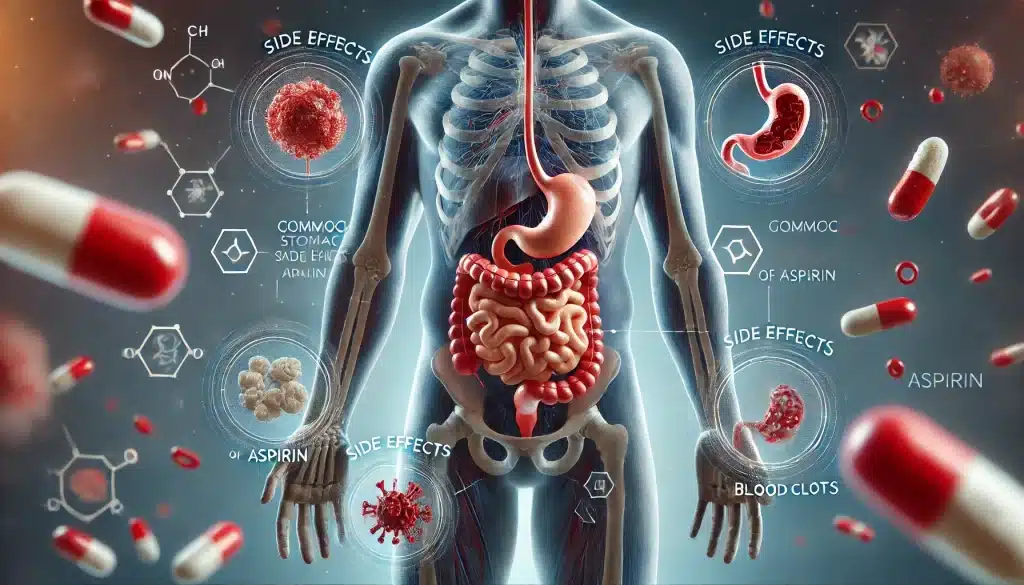
4.1. Common Side Effects of Aspirin
Common side effects of aspirin include gastrointestinal issues such as stomach pain, heartburn, and nausea. These side effects are usually mild but can be bothersome, especially for individuals with sensitive stomachs.
- Stomach pain and discomfort
- Heartburn and indigestion
- Nausea and occasional vomiting
4.2. Serious Risks: When Aspirin Can Do More Harm Than Good
Serious risks associated with aspirin use include gastrointestinal bleeding, allergic reactions, and increased risk of hemorrhagic stroke. These risks are particularly pronounced in individuals who have conditions such as ulcers, certain bleeding disorders, or a history of allergic reactions to NSAIDs.
- Gastrointestinal bleeding, particularly in those with a history of ulcers
- Allergic reactions, including hives and respiratory issues
- Increased risk of hemorrhagic stroke, especially at higher doses
5. Who Should Take Aspirin for Heart Attack Prevention?
Aspirin for Heart Attack Prevention is not suitable for everyone. Identifying the right candidates for aspirin therapy is crucial for maximizing its benefits while minimizing risks.
5.1. Recommended Groups for Aspirin Use
Aspirin is generally recommended for individuals who have a high risk of heart attack, including those with a history of cardiovascular events, chronic angina, or certain risk factors such as diabetes and hypertension. Consulting with a healthcare provider is essential to determine if aspirin is appropriate.
- Individuals with a history of heart attacks or strokes
- Patients with chronic angina or coronary artery disease
- Those with risk factors like diabetes, high blood pressure, or high cholesterol
5.2. Groups That Should Avoid Aspirin
Certain groups should avoid aspirin due to the risk of adverse effects. These include individuals with a history of gastrointestinal bleeding, those with allergies to NSAIDs, and individuals with certain bleeding disorders. It is crucial to evaluate the risks versus benefits with a healthcare provider.
- People with a history of gastrointestinal bleeding or peptic ulcers
- Individuals with aspirin or NSAID allergies
- Patients with bleeding disorders such as hemophilia
6. Guidelines for Aspirin Use in Preventing Heart Attacks
For those considering aspirin for Heart Attack Prevention, following proper guidelines is essential to ensure safety and effectiveness. Dosage, frequency, and consultation with healthcare professionals play a critical role in aspirin therapy.
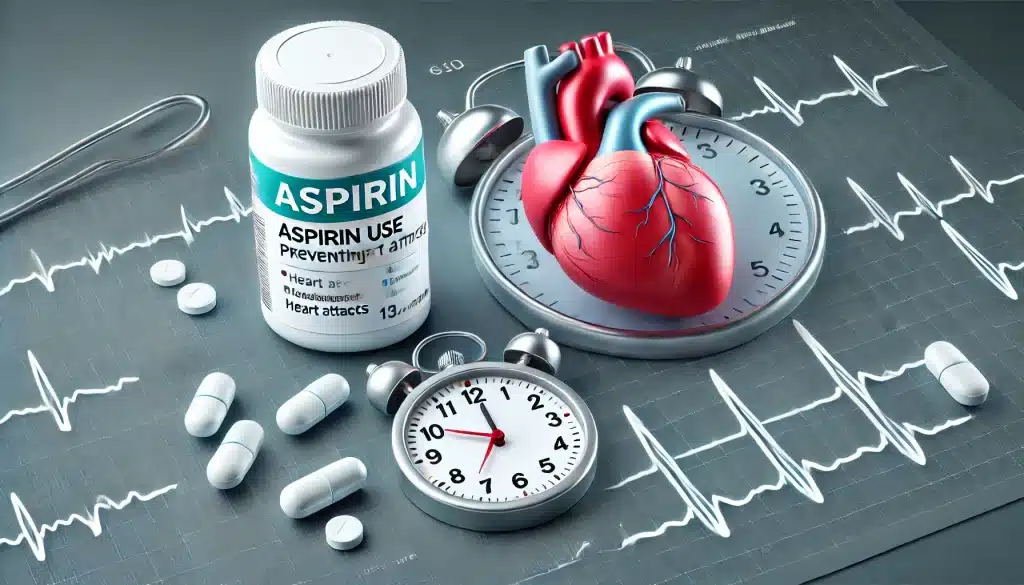
6.1. Recommended Dosages and Frequency
The typical dosage for aspirin in heart attack prevention is a low-dose regimen, usually 81 mg per day, often referred to as “baby aspirin.” Higher doses are generally reserved for acute situations and must be prescribed by a healthcare provider.
- Standard low dose: 81 mg daily
- Higher doses (325 mg) may be used under specific medical guidance
- Consistency in timing and adherence to prescribed dosage is crucial
6.2. How to Safely Incorporate Aspirin Into Your Routine
To safely incorporate aspirin into your daily routine, take it with food to minimize gastrointestinal discomfort, and avoid other NSAIDs unless specifically advised by your doctor. Regular check-ups to monitor for side effects and efficacy are recommended.
- Take aspirin with meals to reduce stomach irritation
- Avoid combining with other blood-thinning medications without advice
- Regularly review your regimen with your healthcare provider
7. Alternatives to Aspirin for Heart Attack Prevention
While aspirin for Heart Attack Prevention is effective, it is not the only option. Various alternatives, including other medications and lifestyle changes, can also help reduce heart attack risk.
7.1. Other Medications for Heart Attack Prevention
There are several medications that serve as alternatives or adjuncts to aspirin, including antiplatelet drugs like clopidogrel and blood thinners such as warfarin. These medications might be prescribed based on individual risk factors and health conditions.
- Clopidogrel (Plavix) for patients who cannot take aspirin
- Warfarin or newer anticoagulants like apixaban for broader clot prevention
- Statins for managing cholesterol levels alongside clot prevention
7.2. Lifestyle Changes as Natural Alternatives
In addition to or instead of medications, lifestyle changes can significantly lower the risk of heart attacks. A heart-healthy diet, regular exercise, quitting smoking, and managing stress are powerful tools in heart attack prevention.
- Adopting a balanced diet rich in fruits, vegetables, and whole grains
- Engaging in regular physical activity, such as brisk walking or swimming
- Avoiding tobacco use and limiting alcohol consumption
8. Frequently Asked Questions About Aspirin and Heart Health
Many people have questions about the use of aspirin for Heart Attack Prevention. Below are some of the most common inquiries along with clear, evidence-based answers to help guide your understanding and decision-making.
8.1. Can Aspirin Replace Other Heart Medications?
Aspirin is not intended to replace other heart medications but rather to complement them. For example, it is often used alongside statins, beta-blockers, and ACE inhibitors to provide comprehensive heart protection. Always consult with a healthcare provider to determine the best combination of treatments for your specific needs.
8.2. How Long Should You Take Aspirin for Prevention?
The duration of aspirin therapy for heart attack prevention varies depending on individual risk factors and the guidance of a healthcare provider. For some, lifelong low-dose aspirin may be recommended, while others might only need it temporarily. Regular reviews with your healthcare provider will help determine the appropriate duration.
- Long-term use is common for individuals with high cardiovascular risk
- Periodic reassessment of the need for aspirin therapy is essential
- Adjustments to dosage or discontinuation may be required based on health changes
9. Conclusion: Balancing Benefits and Risks of Aspirin
Aspirin for Heart Attack Prevention remains a valuable tool in cardiovascular care, offering significant benefits for many individuals at risk of heart attacks. However, it is important to balance these benefits with the potential risks, making informed decisions in consultation with healthcare providers.
9.1. Key Takeaways on Aspirin for Heart Attack Prevention
The key to effective use of aspirin lies in understanding who benefits most and who should avoid it. For those with a history of heart attacks or significant risk factors, aspirin can be a lifesaver. However, for others, especially those prone to bleeding, the risks may outweigh the benefits.
- Aspirin effectively reduces the risk of heart attacks in high-risk groups
- Potential side effects, including gastrointestinal bleeding, should be monitored
- Regular consultation with healthcare providers ensures the safe use of aspirin
9.2. Final Thoughts and Recommendations
Ultimately, the decision to use aspirin for heart attack prevention should be individualized, considering personal health history and risk factors. Always discuss with your healthcare provider to tailor a plan that best supports your heart health, whether it includes aspirin, alternative medications, or lifestyle changes.
- Consult with a healthcare provider before starting or stopping aspirin therapy
- Maintain a heart-healthy lifestyle alongside any medication regimen
- Stay informed about new guidelines and research related to aspirin use
